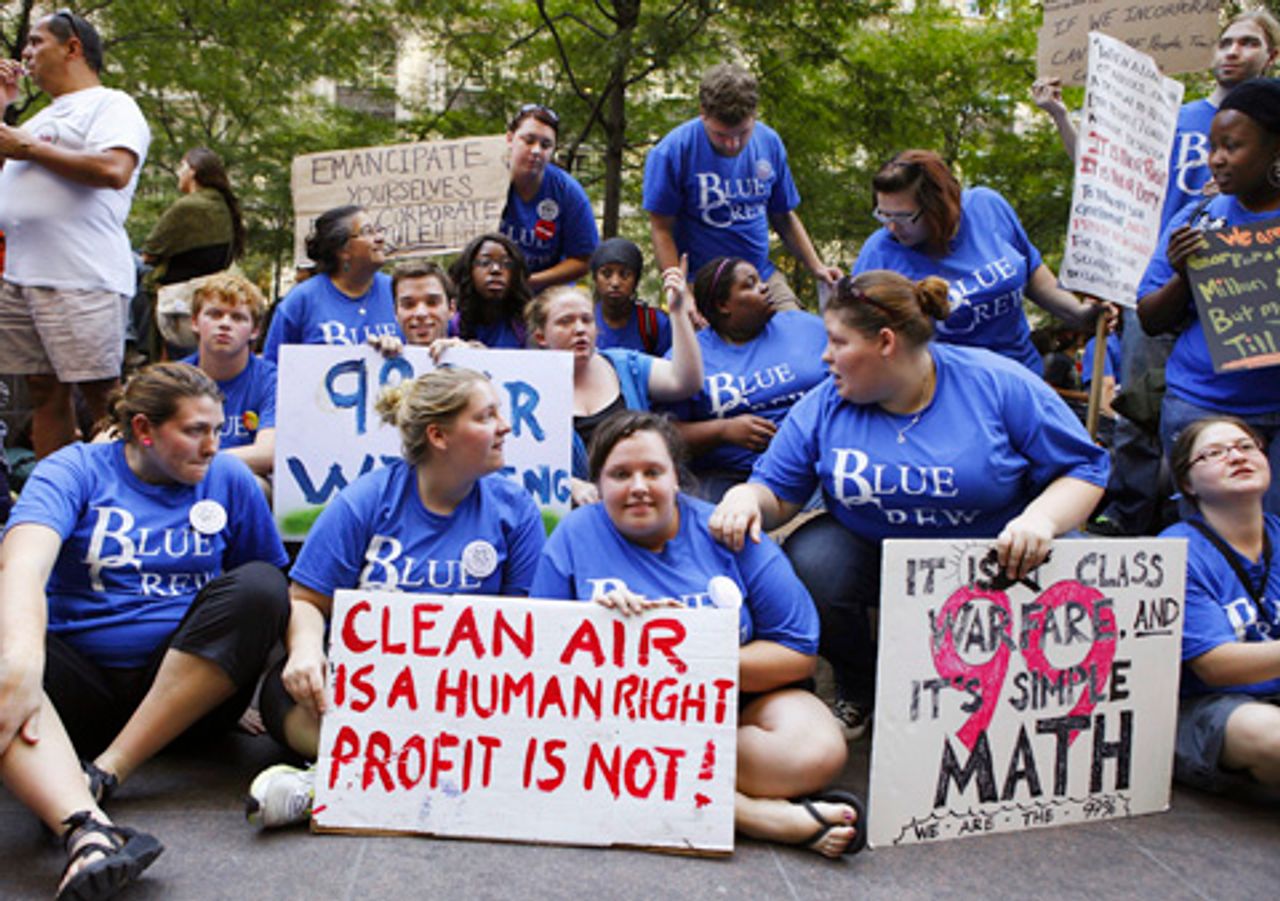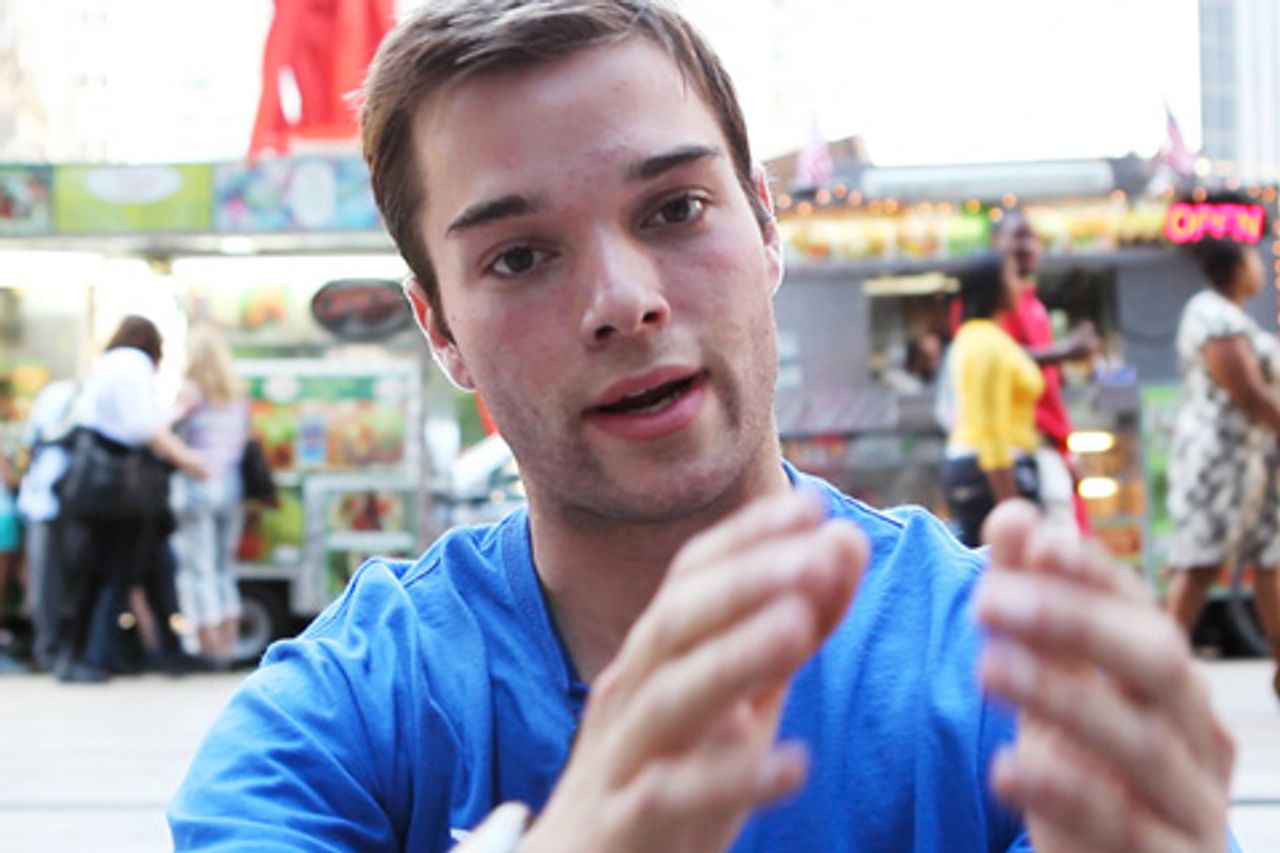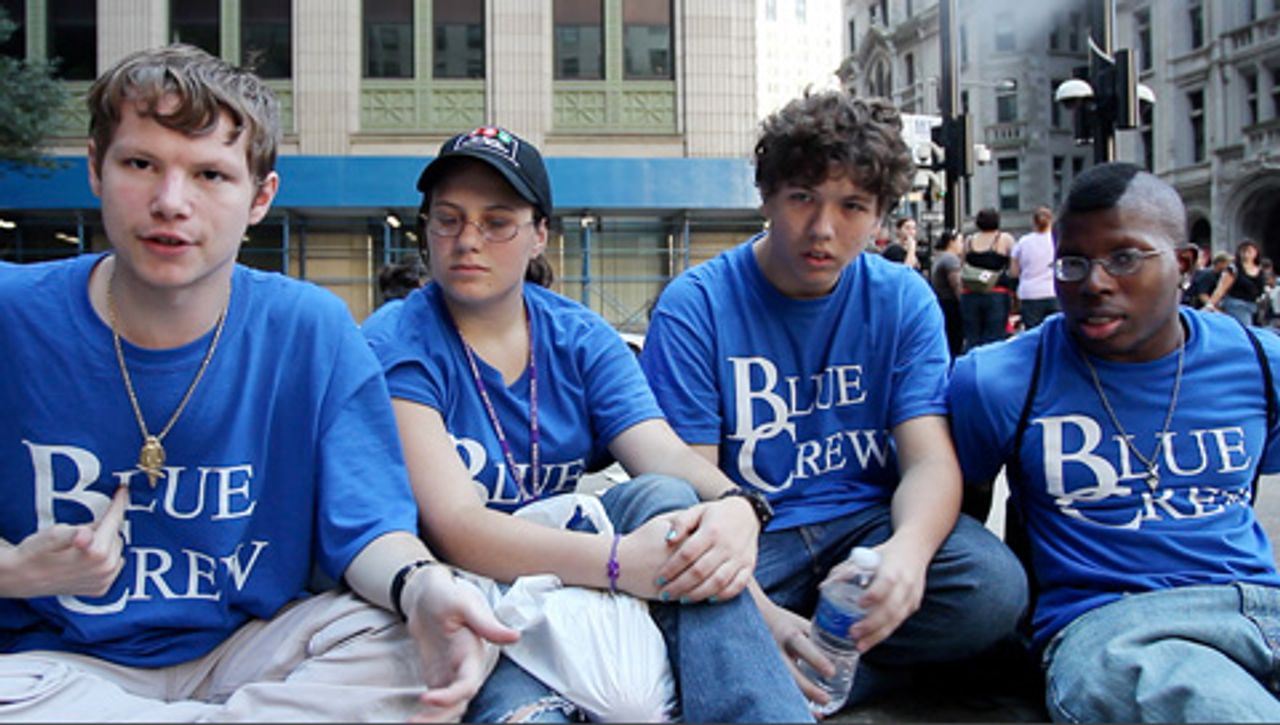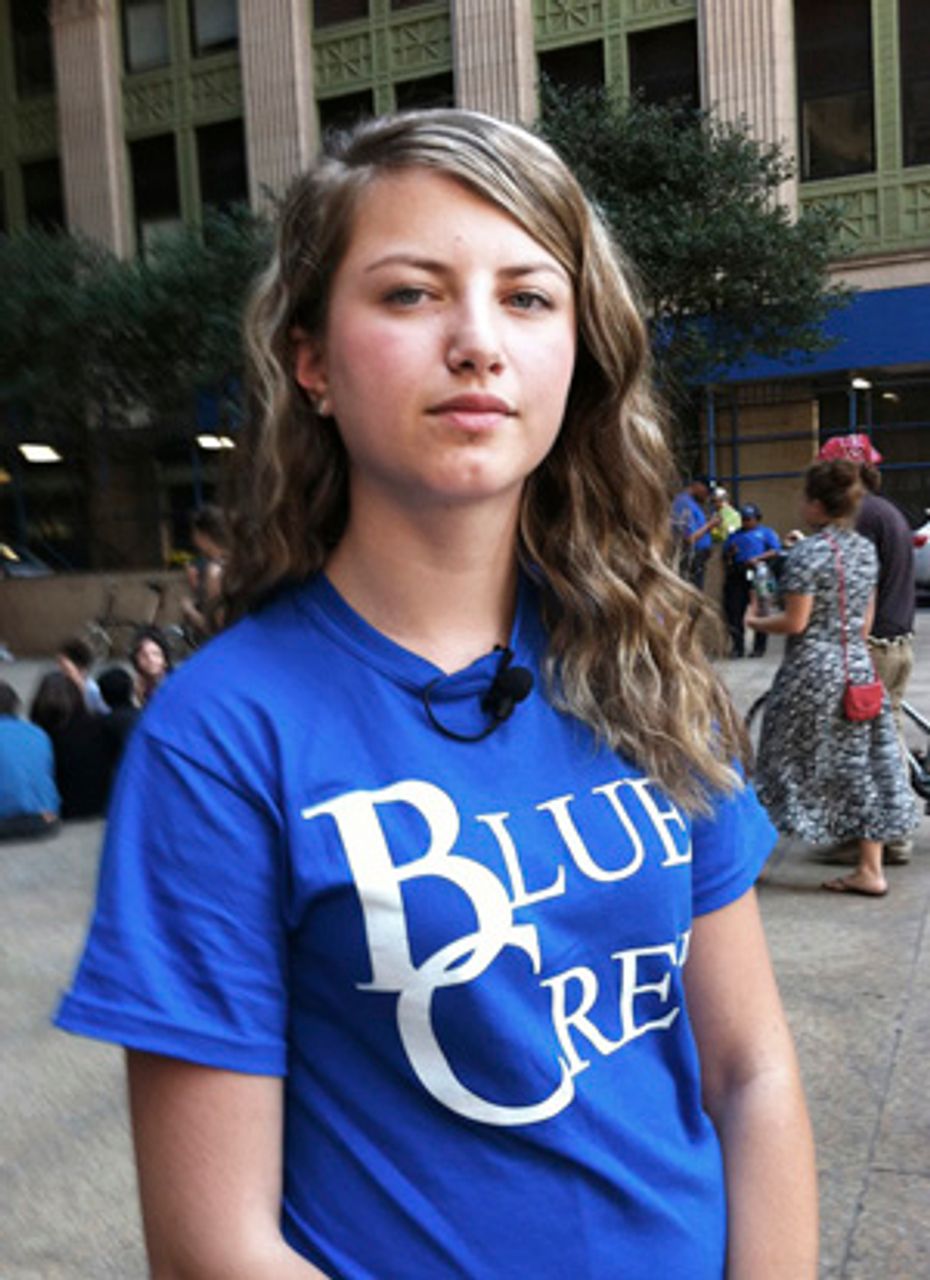 A portion of the delegation from Berea College
A portion of the delegation from Berea CollegeA contingent of over 40 students from Berea College in Kentucky arrived by bus in New York City Saturday to participate in the ongoing Wall Street protests after raising thousands of dollars from the student body and supporters.
The students decided last Monday to raise funds to make the trip and participate in the occupation of Zuccotti Park. They raised over $15,000 in five days, only to have the school administration freeze the funds from the Student Government Association’s account 24 hours before the scheduled trip because of a paperwork technicality and alleged concern for the students’ safety. The students then raised thousands of additional dollars from students, faculty and supporters in a single day, enabling them to make the trip.
 Sean Litteral
Sean Litteral “We come here to represent not only the people in the communities that we come from, but also the people of Appalachia,” said Sean Litteral, the student body president and one of the leaders of the delegation.
“People have made comparisons between Appalachia and countries in Africa. We have people throughout the area living in shantytowns, surviving only because of government assistance. Many are suffering from the economic policies now being implemented.”
Berea College, located 40 miles south of Lexington, Kentucky, provides free tuition to students from low-income families. Established in 1855 by the abolitionist John Gregg Fee, it was the first racially integrated and coeducational college in the American South.
“We come from a community that is being directly affected by this unjust economic system,” said Elizabeth Vega, one of the members of the delegation. “The average family income for students at Berea College is about $28,000 and about 80 percent of us come from Appalachia, one of the poorest regions in the country. One of the other students here today recently lost his father and the banks are now foreclosing on their family farm. The stories of what people are going through just make you cry.
 Students from Berea College delegation
Students from Berea College delegation“We were so determined to come up here that once we decided we were knocking on the door of the president of the school at 9:30 at night. The students moved mountains to get here and were almost stopped by the school because of a piece of paper.”
“Coming up here has been a life-changing experience for all of us,” she continued. “Many students are rethinking their futures and their priorities, considering dedicating themselves to fighting for social justice.
“The system has totally failed. What does it say about a society when the richest 20 Americans saw their income increase double digits in the midst of a recession that has thrown millions of people into poverty? From what I’ve read, the combined income of these 20 individuals is greater than the entire country of Canada.
“I’m 40 now and one of the older students at the school, but decided I needed to get a degree to pursue my interests working in end-of-life care. I’m from New Mexico originally and was a young single mother, very poor, even living in a homeless shelter for a while. I’m actually a grandmother now and I get very emotional when I think of what kind of future is being left for my grandson. We are leaving behind a future with few resources, no jobs, no education—no hope.
“But when I see all these young people here fighting, empowered—I feel inspired. But it’s inspiration that makes you hold your breath because there are so many obstacles. It’s not going to be easy but I think we can really make a change.”
“Politics has become a game of money now,” added Sean Litteral, a 20-year-old junior student. “Whoever has the most money is the person likeliest to be in office. We see this with Obama. He is raising historically unprecedented amounts of money for his election campaign, and that certainly has influenced his policies.”
He said he felt that his fellow working people are under attack by politicians who are cutting billions of dollars from social programs. “I grew up in the projects in Columbus, Ohio. My mom made $11,000 a year, and she was a single parent. I had three siblings. I know for a fact that without government assistance, without a Pell grant, I would never be where I am in life today.”
Speaking of social inequality in America, he added, “How much money do they really need? How many houses do they need to have? How many wars need to be fought to get them those things? How many people need to be exploited?
 Erza Rudi
Erza Rudi“I have a friend whose father just died and his mother was just laid off, and he made a $135 check from Berea College. All of the students at Beria work for the college as part of their scholarship, and we make $3.50 an hour. He got his check, paid off his mom's bills, and he had $4 left. He gave his mom $2 and kept $2 for himself. When we get to that point, something has to change.”
Erza Rudi, who moved to the United States from Kosovo last year, was also part of the delegation from Berea College. “A lot of people who come to the United States think they’re going to live the American Dream, but they don’t realize the American reality,” she explained.
“In my time in the United States, I've seen my classmates miss meals because they don’t have money, seen their parents lose their jobs and their homes. This has been going on for too long, and we are finally doing something about it.”
